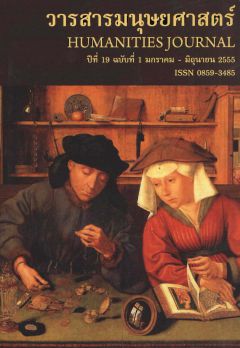Word Formation Processes of Neologisms Found in Women Cosmetic Advertisements in Women Magazines
Main Article Content
Abstract
The main objectives of this study are to investigate the most frequently used processes in forming the neologisms in women cosmetic advertisements in the women magazines: Marie Claire, Cosmopolitan, and Harper’s Bazaar, and to examine whether the most frequently used processes are shortening processes, as suggested by Lehrer (2007). New words were collected from women cosmetic advertisements in the magazines which were published from January 2010 to May 2011. New words were analyzed based on the classification of word formation processes suggested by Yule (2006), Plag (2003), and Aitchison (1994). There are 97 new words which were found for the study.
The results of the study showed that these new words can be categorized into six word formation processes which are compounding, affixation, blending, layering, abbreviation and multiple processes. The percentages of these processes are 40.21%, 34.02%, 17.53%, 3.09%, 2.06%, and 3.09% respectively. Among these processes, compounding and affixation are the most common processes used to form new words in women cosmetic advertisements in the magazines. The results of the study are inconsistent with the suggestion of Lehrer (2007) because compounding and affixation are the processes of making words longer than the original ones. There are two main reasons why these processes were frequently employed to form new words in these sources. The first reason is that these processes add a word or an affix which carries additional meaning to the original words so as to make them full of meaning and completely describe the qualification of the advertised products. The second reason is that new words created by these processes can be easily understood and recognized their meanings. The audiences can know immediately about the qualification of the advertised product from the appearance of the word itself.


